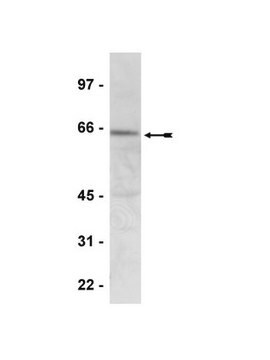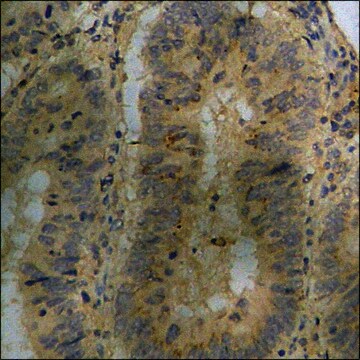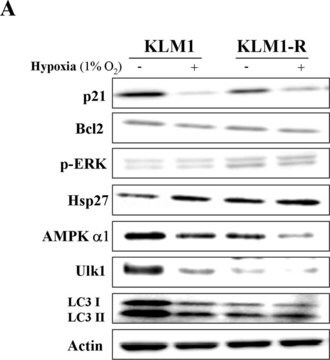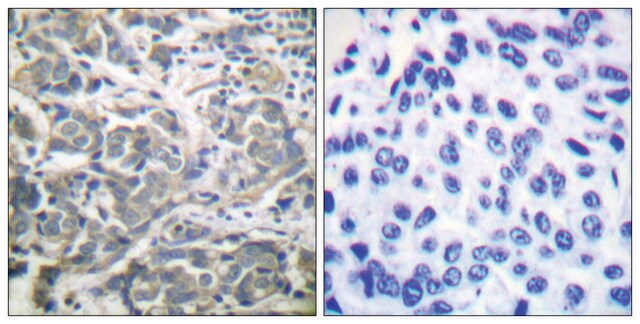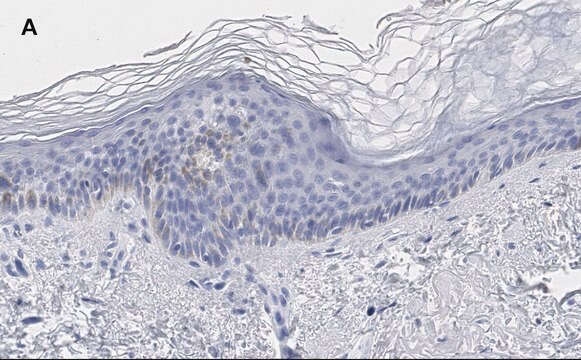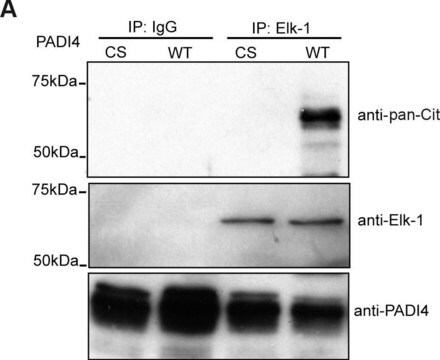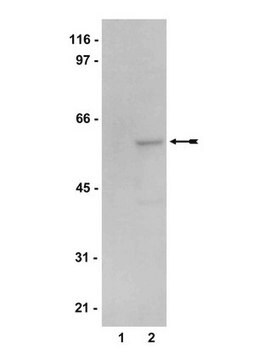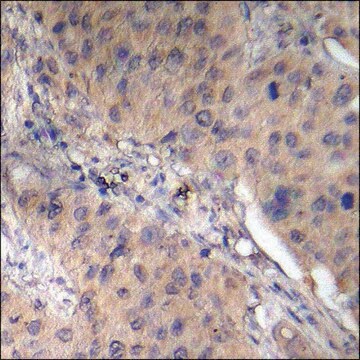07-626
Anti-phospho-AMPKα (Thr172) Antibody
Upstate®, from rabbit
Synonym(s):
5′-AMP-activated protein kinase, catalytic alpha-1 chain, AMP -activate kinase alpha 1 subunit, AMP-activated protein kinase, catalytic, alpha-1, AMPK alpha 1, AMPK alpha-1 chain, protein kinase, AMP-activated, alpha 1 catalytic subunit
About This Item
Recommended Products
biological source
rabbit
Quality Level
antibody form
affinity isolated antibody
antibody product type
primary antibodies
clone
polyclonal
purified by
affinity chromatography
species reactivity
human
species reactivity (predicted by homology)
bovine, rat, chicken, mouse, horse
manufacturer/tradename
Upstate®
technique(s)
western blot: suitable
isotype
IgG
NCBI accession no.
UniProt accession no.
shipped in
wet ice
target post-translational modification
phosphorylation (pThr172)
Gene Information
human ... PRKAA1(5562)
mouse ... Prkaa1(105787)
General description
Specificity
Immunogen
Application
Signaling
Metabolism
Insulin/Energy Signaling
Quality
Western Blot Analysis: A 1:500 dilution of this antibody detected AMPKα in serum starved and serum starved, Lambda dephosphorylated HEK293 cell lysate.
Target description
Physical form
Storage and Stability
Analysis Note
HEK293 cell lysate
Other Notes
Legal Information
Disclaimer
Not finding the right product?
Try our Product Selector Tool.
recommended
Storage Class Code
12 - Non Combustible Liquids
WGK
WGK 1
Flash Point(F)
Not applicable
Flash Point(C)
Not applicable
Regulatory Listings
Regulatory Listings are mainly provided for chemical products. Only limited information can be provided here for non-chemical products. No entry means none of the components are listed. It is the user’s obligation to ensure the safe and legal use of the product.
JAN Code
07-626:
Certificates of Analysis (COA)
Search for Certificates of Analysis (COA) by entering the products Lot/Batch Number. Lot and Batch Numbers can be found on a product’s label following the words ‘Lot’ or ‘Batch’.
Already Own This Product?
Find documentation for the products that you have recently purchased in the Document Library.
Our team of scientists has experience in all areas of research including Life Science, Material Science, Chemical Synthesis, Chromatography, Analytical and many others.
Contact Technical Service